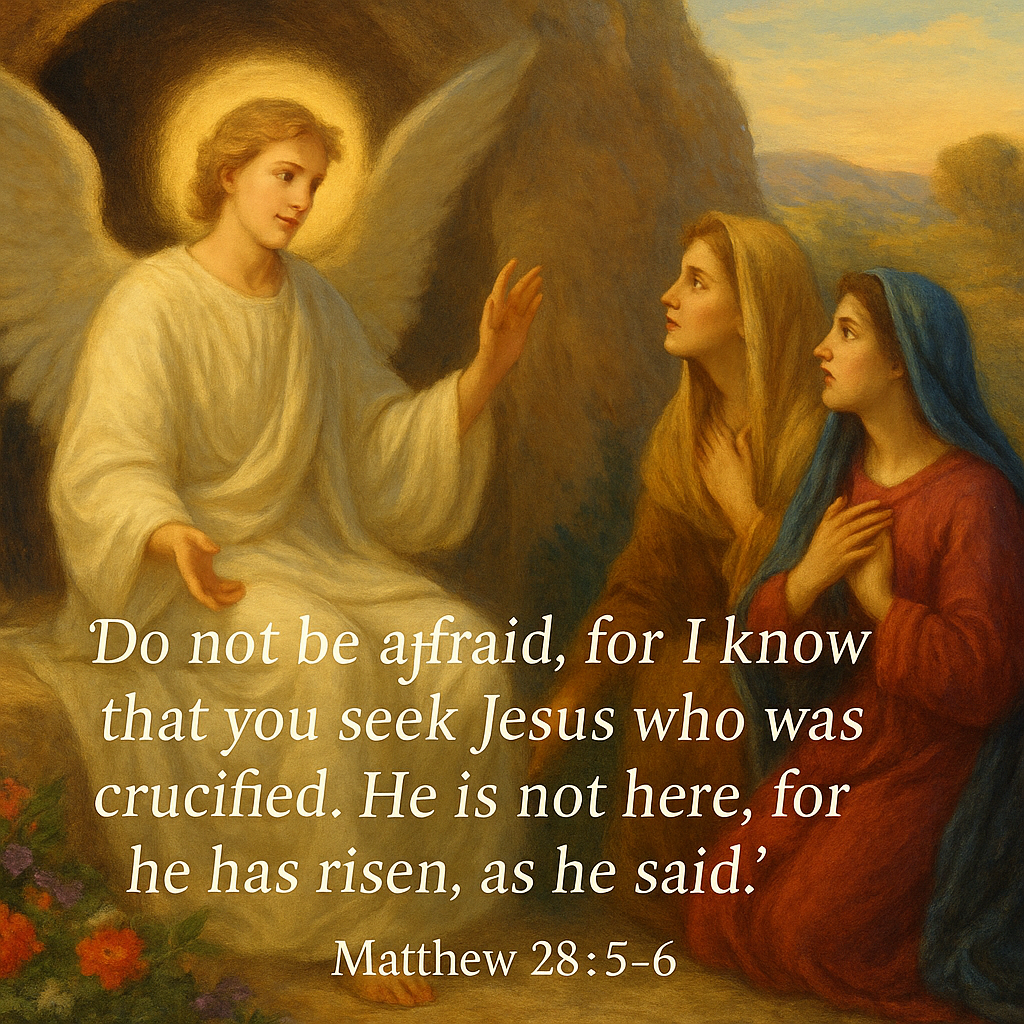Easter’s centrality to Christian faith is foundational to the life of every believer. While other religions celebrate leaders who lived and died, Easter uniquely celebrates a risen Savior. It’s not just important to Christianity, it’s the core around which everything else aligns.
In fact, the Apostle Paul said, “If in Christ we have hope in this life only, we are of all people most to be pitied.” (1 Corinthians 15:19 ESV)
Easter is the designated holiday on which Jesus’ followers celebrate His bodily resurrection from the dead. Good Friday solemnly remembers the cruelty of His death on the cross, but Easter finds victory in Jesus’ resurrection three days later. Resurrection Sunday is celebrated yearly by Christians around the world.
While walking this earth, Christ demonstrated his deity through miracles, fulfilled prophecy, and teaching. But Easter’s significance proves His unstoppable power to save souls. It assures us that Jesus conquered sin’s curse and offers forgiveness. It secures our own resurrection through eternal life in Christ.
What Does the Bible Say about the Resurrection of Jesus?
The meaning of Easter becomes more precious as we look at biblical accounts of Christ’s resurrection. All four gospels testify to the resurrection. Each builds upon Christ’s sinless life on earth, the cruelty He suffered, His crucifixion, death, and burial.
Matthew 28, Mark 16, Luke 24, and John 20-21 document the events of His resurrection. These varied accounts attest to one reality: Jesus rose from the dead.
Witnessed by women followers and confirmed by the disciples, Jesus’ resurrection, attested to by those living at the time, was carefully documented. After three days in the tomb, He appeared on earth for forty days. He ate, walked, taught, and performed miracles. Diverse ethnicities, different layers of society, and even a crowd of 500 at the same time all testify to the factual resurrection.
The book of Acts begins with Jesus presenting Himself to His apostles and giving them instructions for their future. The Apostle Paul saw the risen Christ on the road to Emmaus. He documents the authenticity and historical reliability of the resurrection.
“For I delivered to you as of first importance what I also received: that Christ died for our sins in accordance with the Scriptures, that he was buried, that he was raised on the third day in accordance with the Scriptures, and that he appeared to Cephas, then to the twelve. Then he appeared to more than five hundred brothers at one time, most of whom are still alive, though some have fallen asleep. Then he appeared to James, then to all the apostles. Last of all, as to one untimely born, he appeared also to me.” (1 Corinthians 15:3-8 ESV)
Was Easter Originally a Pagan Holiday?
Our Easter celebration coincides with the time of pre-dated pagan festivals. During the Spring Equinox, celebrations occurred for many ancient gods and goddesses all around the globe. The Hebrew Passover also takes place in Spring.
All four gospels record Jesus and his disciples being in Jerusalem for the Passover before His crucifixion. (Matthew 26:1-5; Mark 14:12-16; Luke 22:7-13; John 18:1-11) Passover commemorates the Old Testament account of the angel of death “passing over” all who marked their doorframes with the blood of a lamb. Jesus Himself became the Perfect Passover Lamb.
The origin of the English word “Easter” is obscure. The actual word “Easter” in the Bible appears only once and in only one translation. (Acts 12:4 KJV). The original Greek word, pascha, refers to the Passover. Biblical accounts make no mention of observing Easter, and persecution likely restricted early Christians from commemorating Jesus’ resurrection.
Commentators who link Easter to paganism often tie the celebration to an Anglo-Saxon goddess, Eostre, associated with spring and fertility. Others connect it to a similar Germanic goddess, Ostara. It may also relate to an old High German word, eoastarum, meaning “dawn,” when light breaks through darkness.
However, these word similarities do not signify that the Easter holiday itself is pagan or mythical. In fact, many things are linked to ancient pagan gods, such as the days of the week and months.
How Did Easter Traditions Develop and Why Do We Celebrate it in Spring?
Many of the traditions we practice today in preparation for the Easter season are symbolic and have no real religious meaning or connection. Easter egg hunts, chicks, and bunnies point more to the celebration of the blossoming Spring season than the resurrection of Jesus.
However, spring brings wonderful opportunities to remember and honor the Creator of new life. Although the origin of the name “Easter” and its traditions may be murky, the celebration of Resurrection Sunday reminds us of the greatest event in all history.
Religious traditions surrounding Easter should be sifted through the grid of God’s Word. It will help us determine how best to honor His death, burial, and resurrection.
Easter Prayers, Reflections, & Scriptures
Scripture itself leads us in meaningful Easter prayers and reflections. Reading aloud the gospel accounts (Matthew 28:1-20; Mark 16:1-20, Luke 24:1-53; John 20:1-31) of Jesus’ resurrection always centers the celebration in meaningful truth.

“Do not be afraid, for I know that you seek Jesus who was crucified. He is not here, for he has risen, as he said.” (Matthew 28:5-6 ESV)
“And as they were frightened and bowed their faces to the ground, the men said to them, “Why do you seek the living among the dead? He is not here, but has risen.” (Luke 24:5-6 ESV)
“Jesus came and stood among them and said to them, 'Peace be with you.' When he had said this, he showed them his hands and his side.” (John 20:19b ESV)
Read and pray passages with humility of heart and awe. Consider what they mean to you. Linger in the context and details. What impact on life and eternity do they present?
There are also many wonderful Easter prayers traditionally spoken in churches around the world.
“Come all the faithful, let us worship God,
for through the Cross, joy has come to all the world.
Ever blessing the Lord, we sing His Resurrection,
for having endured the Cross for us,
He has destroyed death by death.”
—Oxford Prayer Book.
Christ our Passover
Christ our Passover has been sacrificed for us;
therefore let us keep the feast,
Not with the old leaven, the leaven of malice and evil,
but with the unleavened bread of sincerity and truth. Alleluia.
Christ being raised from the dead will never die again;
death no longer has dominion over him.
The death that he died, he died to sin, once for all;
but the life he lives, he lives to God.
So also consider yourselves dead to sin,
and alive to God in Jesus Christ our Lord. Alleluia.
Christ has been raised from the dead,
the first fruits of those who have fallen asleep.
—Book of Common Prayer
One of the most popular Easter hymns is "Christ the Lord is Risen Today." Listen to a moving version of it here.
What Are Meaningful Ways to Celebrate Easter as a Christian?
Meaningful ways to celebrate Easter often include gathering with other believers.
- Attendance at Easter services is the highest of any holiday. Inviting someone to celebrate Resurrection Sunday makes it more meaningful for everyone.
- Join a sunrise service. Sunrise Services commemorate the women who went to the tomb at early dawn and found it empty. (Luke 24:1)
- Participate in worship through music, praise, and prayer.
- Read the story of the resurrection directly from the Bible. Try responsive readings of the passages.
- Share the story of Christ’s resurrection and offer of salvation with a friend or through a planned event. The risen Christ commanded, “Go into all the world and proclaim the gospel to the whole creation.” (Mark 16: 15 ESV)
- Listen to a podcast that focuses on Easter themes or Scriptures such as this one from Life Audio.
Living in the Power of the Resurrection
Christ followers ought to confidently rejoice in the significance of the power of the resurrection.
The Apostle Paul revealed his heartfelt desire when he wrote, “that I may know him and the power of his resurrection…” (Philippians 3:10 ESV)
The power of the resurrection resides within each believer. Once dead in sin, we are now alive with Christ. By learning submission to the Holy Spirit and growing through reading His Word and prayer, our knowledge of Jesus grows. He is present in every part of our daily life and choices. He helps us become more like Him.
“If the Spirit of him who raised Jesus from the dead dwells in you, he who raised Christ Jesus from the dead will also give life to your mortal bodies through his Spirit who dwells in you.” (Romans 8:11 ESV)
Christ’s victory over sin and death is also our victory. His resurrection assures us that we, too, can be raised to eternal life through faith in Him. That same power saves us, gives us victory over temptation, and enables us to grow more like Him in obedience. Every day becomes a celebration of Easter’s joyous message.
Additional Easter Resources:
True Meaning of Easter Why Is It Celebrated
Orthodox Easter Origin and Date
10 Easter Movies Life of Jesus Watch
Top Easter Bible Verses to Celebrate the Resurrection of Christ
Top Easter Hymns Worship Songs For Easter
Why Do We Say: He Has Risen During Easter?
What Happened When Jesus Rose from The Dead?
Where Was Jesus Buried?
When Is Easter Sunday?
Top Easter Quotes
Easter Bunny Connected to Christianity Meaning and Origin
What are the Pagan Roots of Easter?
Reasons Why Christians Celebrate Easter
What Is Resurrection Sunday In The Easter Season?
What is Greek Easter and How Is it Different?
What is the Significance Of: They Found the Stone Rolled Away from The Tomb?
Easter Poems For Church
Why is the Color Purple Associated with Easter?
What Part of Easter is Resurrection Day?
Why Did Only the Women Go To Jesus Tomb?
What Is the Significance Of Draping The Cross And Flowering The Cross?
What Does the Resurrections Power Mean For Us Today?
What Is the Pascha Bible Part Of Easter?
50 Religious Easter Quotes Holy Week
Photo credit: ©GettyImages/Boonyachoat

Her love for pasta and all things Italian stems from years of ministry abroad. She’d love to tell you about it over a steaming cup of cappuccino. Connect with Sylvia on her blog, When the House is Quiet, her Facebook page, or Twitter.




